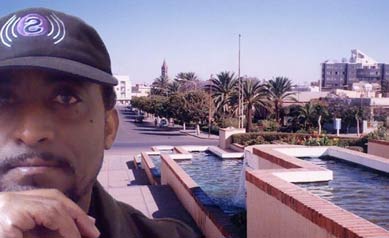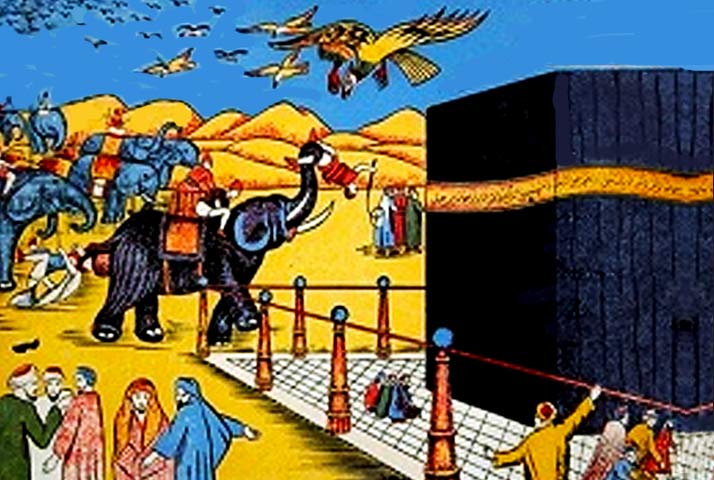The Saleh Younis Reader: His Craft and Politics

I would bet that most people if asked to introduce Saleh Younis, they would just say one sentence: Saleh Younis does not need introduction. I disagree. He needs a lot of introduction. And if you want to talk about both his craft and politics, the introduction will be excruciatingly long. So I will skip the introduction.
When you read this piece understand that Saleh is a good friend of mine, but I also bet that he will deny the good part and accept only the friend part. He is an excellent writer, but I am confident that he will also deny the excellent adjective, or any adjective for that matter, but he will grudgingly accept the writer part. He is an astute politician, but I am certain that he will refute it with, “I am not a politician, much less astute, I am just in politics because PFDJ is disappearing people…”
In his writing he tickles, teases, probes, challenges, inspires and punches. He uses humor to lubricate his debates and he veers to music to season his viewpoints. Those who are tickled will immediately feel it. Those who are punched will not, until they wipe their noses to see blood. Until then they would not know whether their noses are running or bleeding.
During his Camboni days, he has flirted with Huria and Nuria in Akria, and has charmed Harnet and Natsenet in Mai-Chehot. He is blessed with a bird’s eye view of the entire Eritrean culture and geography. He is what you would want in a country as diverse as Eritrea, fluent in Tigrinya, Tigirayit and Jebertait, always cognizant, invariably deferential and courteous, firmly anchored in pragmatism and eternal optimism.
With a blend of humor and seriousness he would criticize a Tigrayit song that roams around Eritrea in its lyrics as weak geography lesson but when Goitom Afwerki mentions every neighborhood, every alleyway, every corner in his Asmara, Asmara song, Sal notices, and mildly but delightfully complains that he had to wait until the end to hear his childhood neighborhood mentioned. When it comes to Asmara, all is forgiven. Oh, but do not ever get started with that thirsty guy who sings, give me water from every river and creek around Keren.
He would attend a wedding in Awenjeli and when the locals make fun of his Asmarino sartorial taste, and when he would not take it anymore, with smile he would ascend the stage and would sing “gl tthade tu dib maAshura w’htta samEt e’halet itassoula”, she will be married away, but do not tell her. Stunned the locals will tell each other, “nayna tu, and welna tu”: he is ours, he is our son! And dress him with Jelabiya and taggia and sideryia and bequeath him a sword. A drop of sweat forms on his temples when he touches the sword, but fades away when he discovers it was for decoration and not for dancing. Strolling the streets of his beloved hometown, the Asmarinos mock his attire of the jelabia and call him jihadist, unperturbed he would say, “Abune Philipos kdrribeka eye gin dehan neAa ab billiard estihina kebleka”: I would have knocked you down, but let me defeat you in a game of billiards
Are your intrigued and charmed by, and envious of the art, not by the art of this writing of course but of the art of his craft? If yes, wait until you learn about his politics, all these feelings will posses you simultaneously, you will be “iced” (intrigued, charmed and envious,)
That was the toast but what good is it without a delicious roast! Bring your massive grain salt, though!
He conveniently drops the “Tilian” part when mentioning the neighborhood of his childhood, referring it to just as “Geza-Banda”. But he opines why Eritreans need to always start from scratch, a not so subtle jab at the weed out crowd, the punching that one does not feel. He wonders why we destroyed the status of Haile Selassie as it is part of our legacy and history in the same vein as the Pushkin statue has become one. He abhors weeding-out and would draw from health and nature to prove his point. He would take you to his lush lawn and after attending to his Japanese maple plant, and after talking to his flowers in Tigotany (Tigriniya Botany), he would point to the handful dandelions to remind you that the dandelion is a weed but if you weed it out in search of that perfect grass instead of using it, you would lose in the health benefits it provides. It is all about the balance. He would educate you on the peaceful and vibrant co-existance of the grass and he dandelions. This is the kind of metaphor he uses to lubricate his politics of democratic coup, of peaceful change, of graceful transition. He is pragmatic.
Saleh abhors Keynesian economics but like any fiscal conservatives, if he was the finance minister of his country during a market meltdown, he would stimulate the economy with quantitative easing, not once, but multiple times.
He would advise a UN body not use their “Dictators for Dummies” when dealing with the lunatic Eritrean dictator, Isaias Afwerki. But when debating whether Eritrea is a Totalitarian System he would author his own “Totalitarian for Dummies” manual and hand it to White Western journalist to find out if the PFDJ is a totalitarian system or not.
When he wrote in Dehai and sat in the committee of national defense, he belonged to the PFDJ. When he co-founded Awate.com, he belonged to Eritrea. Now that he has decided to move on, to create the vacancy for new blood, to apply the same standards that he demands from African leaders, Saleh Younis now belongs to the word. Even if he does not accomplish any of the litany of things he lists, even if he only ends up opening that cigar store, even if that store is a virtual one, even if that Nefasit cigar store remains in the deepest recess of his mind, he would still belong to the word.
Like any resignation announcements he has not told us the entire truth, just part of the truth. I suspect that the world has called him and he has answered, transcending, leaving us to the dust, the small opposition that we are for bigger things.
But he is leaving the Awate Team at a critical time, his views that were often infused in the editorials and the Pencil is the lynchpin that helped sustain this website to itch its name in the political and historical lexicon of Eritrea. Saleh need not apply what he demands from our leaders and the Kegames to himself and he knows it. He is not in power, deciding the fate of Eritreans, although I wish he was, he is an intellectual, framing things, enlightening people, crunching numbers, finding facts and truth, offering his vision, a formidable vision, and a vision that can be integrated with others in the “husbandry” of ideas. He is not like our armed struggle era intellectuals who did not accomplish a fraction of what this former Eritrean citizen, now a citizen of world has accomplished in the last two decades
Awate.com has withered many prophesies of it collapse, not only from the PFDJ, but from concerned friends like Dr. Kemal Ibrahim, who was dubbed the resident watchdog for his initial critical views of this website, when he worried about its bluntness to call PFDJ’s Eritrea a dictatorship. Dr. Kemal then was optimistic about the affairs in Eritrea, he was so dazzled that he once wrote he saw the bright future in Eritrea, and that the country was emerging from its historical census based politics to embrace adversarial politics. Like the website, Saleh also has withered a lot of stress as he tenaciously and eloquently wrote against dictatorship while three generation of his family languished in PFDJ’s jails. He has withered the unfair criticism of his grown up brother’s association with PFDJ.
Further Reading:
Over the years Saleh has written hundreds of articles but the following, just a sample of his best, I recommend reading them as primer to his contributions for the last twenty years.
https://awate.com/?p=127786 (July 4, 2001)
https://awate.com/?p=127790 (March 7, 2003)
https://awate.com/?p=127780 (Sept. 18, 2003)
https://awate.com/?p=127783 (April 8, 2004)
https://awate.com/?p=127788 (June 14, 2004)
https://awate.com/?p=127792 (July 26, 2004)


Awate Forum